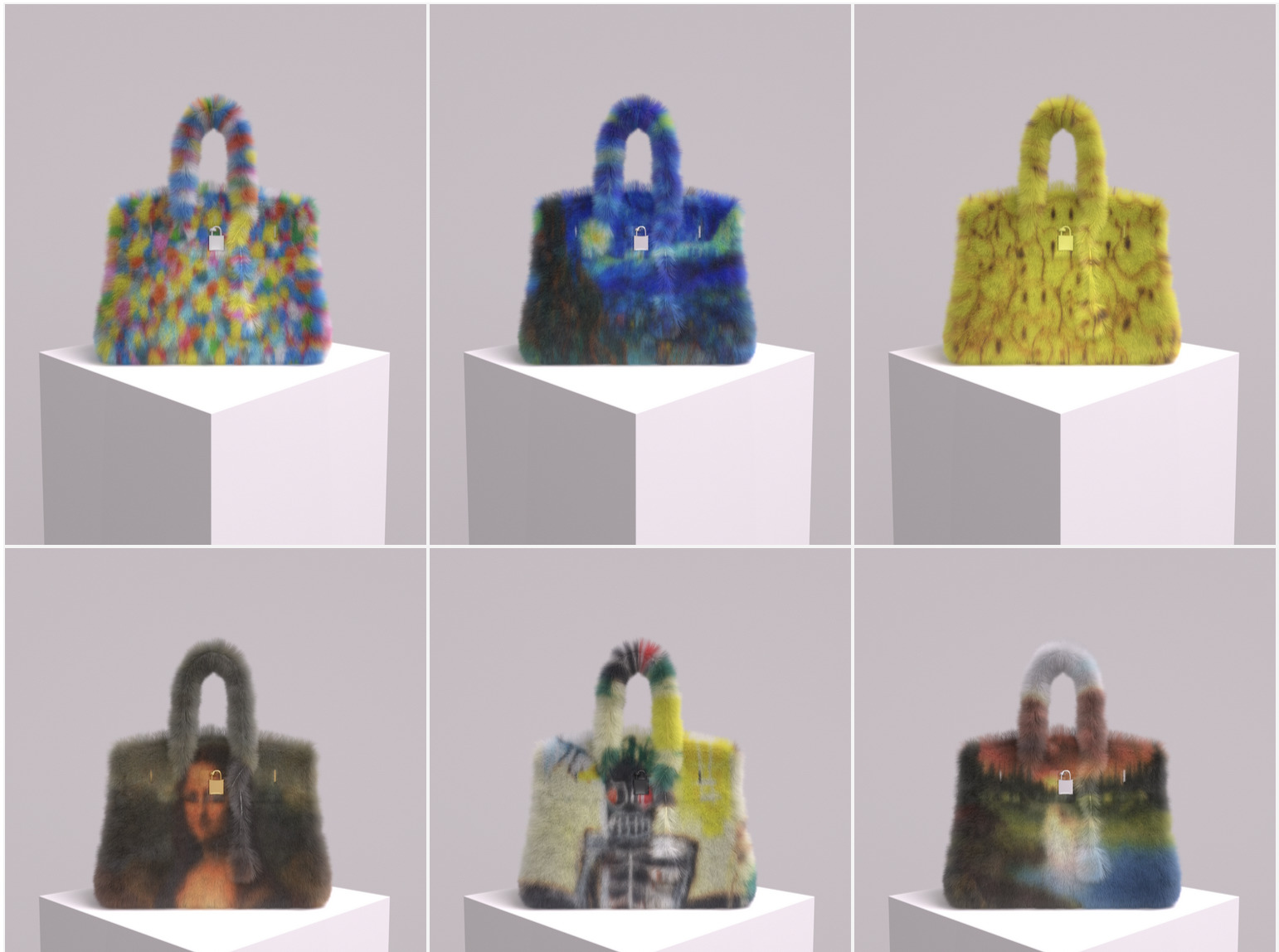Hermès wins the Landmark MetaBirkins NFT Trademark Trial
“A reasonable juror could conclude that Rothschild’s claims that he saw the MetaBirkins as a largely artistic endeavor are a fabrication.” – Judge Rakoff

Luxury fashion brand Hermès won its trademark lawsuit against Mason Rothschild, creator of the non-fungible tokens (NFT) MetaBirkins, on Wednesday. The trial was the first to test the limits of artistic expression in NFTs against the country’s intellectual property laws.
A nine-member jury in New York ordered Rothschild to pay Hermès $110,000 for infringing the luxury brand’s trademark, and $23,000 for cybersquatting. The jury ruled that Rothschild must pay damages for cybersquatting because he used a domain name that is confusingly similar to Hermès.
Hermès was able to argue that Rothschild infringed on the trademark for Birkin bags, a line of bags that range in price up to $500,000.
Rothschild launched the MetaBirkins NFT line in 2021, and it featured an array of 100 digital images of plush Birkin bags. The NFTs fetched a hefty price of around $790,000 in cryptocurrency.
What is at stake?
Rothschild’s lawyers tried to argue that his work was protected by the First Amendment. They also likened the case to pop artist Andy Warhol and his famous paintings of Campbell’s Soup Cans.
However, Hermès was able to argue that Rothschild’s work hindered their ability to enter the NFT space. While the fashion brand said it does not currently sell NFTs, it said it has developed plans for the future.
In the lawsuit, Hermès also cited news reports that falsely stated that MetaBirkins was associated with or endorsed by Hermès. This strengthened the claims that the NFT artwork created confusion.
Rothschild also argued that the inclusion of “Meta” in the name of his NFT line drew enough distinction between his artwork and the fashion label and added to the artistic value of his work. But Hermès saw it much differently, as a clear violation of the fashion brand’s trademark.
Before the jury reached its verdict Wednesday, both sides in the case were denied motions for summary judgment last week. On Feb. 2, District Judge Jed S. Rakoff explained why he would put certain questions in the case before a jury.
Rothschild’s primary argument was the application of Rogers Test, which originates from the 1989 case Rogers v. Grimaldi. This legal test states that artists are protected from trademark infringement if they are making an artistic expression, rather than simply selling a product, and are not misleading consumers.
The district judge found that “the MetaBirkins images … indicate that they originated as a form of artistic expression”, and thus Rogers test used. Of course, this did not mean that Rothschild was in the clear, as his lawyers still had to prove that it did not cause confusion.
Rakoff also stated that Rothschild attempted to separate the NFT line from the fashion brand’s product, but ultimately it would be up to a jury to decide whether there was infringement.
An important piece of evidence in favor of Hermès was text communication from Rothschild in which he said he was sitting on a gold mine.
“A reasonable juror could conclude that Rothschild’s claims that he saw the MetaBirkins as a largely artistic endeavor are a fabrication,” Rakoff wrote.
Ongoing legal battles
The trial was the first of its kind in the United States, and thus it attracted a lot of attention from legal analysts and experts.
NFTs became a booming industry that helped fuel the cryptocurrency market frenzy throughout 2021. While the cryptocurrency market has subsequently crashed, major players are still trying to enter the NFT market.
So both IP lawyers and those with a financial interest in the NFT market watched this landmark case closely.
In a previously published IPWatchdog article, three Norton Rose Fulbright US attorneys wrote on the matter, “it appears that the possibilities for NFTs are endless, but litigation, particularly around intellectual property rights—especially trademarks and copyrights—will likely define those possibilities.”
Litigation around NFTs and laws on intellectual property rights is just beginning. There are several high-profile NFT-related IP lawsuits currently pending, including Nike, Inc. v. Stockx LLCin which Nike is suing online marketplace StockX for trademark infringement related to StockX’s Vault NFT Collection.
And according to Mason Rothschild, he and other artists will not give up the legal battle either.
The creator of MetaBirkins tweeted, “what happened today was wrong. What happened today will continue to happen if we do not continue to fight. This is far from over.”


